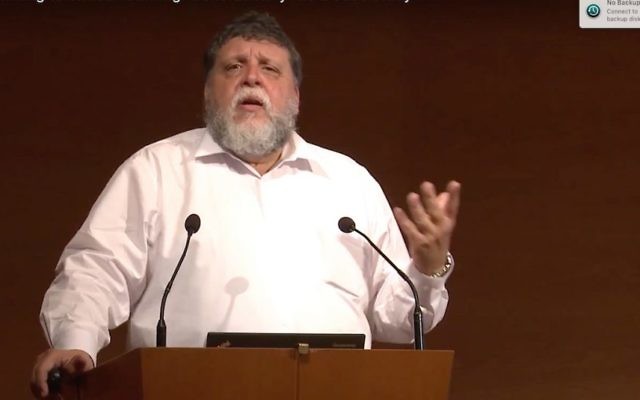Feuerstein headlines ZFA Educators’ Conference
Rabbi Professor Rafael (Rafi) Feuerstein, a well-known Israeli authority in teaching children learning skills, addressed the 2018 Zionist Federation of Australia Educators’ Conference in Melbourne this month.
SCHOOL systems are great at providing educational content but lag behind when it comes to providing young minds with the critical cognitive skills to make the most of the knowledge they are absorbing, according to a visiting education specialist.
Rabbi Professor Rafael (Rafi) Feuerstein, a well-known Israeli authority in teaching children learning skills, is visiting Australia, and addressed the August 12-13 Zionist Federation of Australia (ZFA) Educators’ Conference in Melbourne, which, in its 20th year saw almost 90 workshops and presentations on many aspects of Jewish education.
Speaking to The AJN before the conference, Rabbi Feuerstein reflected, “We need to equip our children with cognitive skills which will let them be flexible”.
“Things are changing so rapidly. The technology that children learn in schools today will be archaeology when they graduate.”
“Many professions will disappear as robots and computers jump in. We have to create flexibility, which means knowing how to learn how to learn.”
Towards this goal, the Israeli educator has become well known for his work with the Feuerstein Institute in Israel, founded by his late father Professor Reuven Feuerstein, a clinical, developmental and cognitive psychologist, and for the Instrument Enrichment (IE) programs the institute developed for enhancing students’ cognitive tools.
With a basic IE program for young children and a standard program for secondary-school students and adults, a trained Feuerstein mediator leads learners, one-on-one or in a classroom, through increasingly complex cognitive tasks and works with them on how to analyse a problem and solve it systematically.
The learner’s progress is monitored, and the program can be adapted to individual learners. The skills taught to younger children include information gathering, strategising, comparing, problem solving, recognising emotions, and developing empathy.
Older learners are taught skills such as analytic perception, comparison, classification, and orientation in space and time. They may include verbal, mathematical, logical and even emotional skills, depending on the needs of the learner.
“Knowledge is no longer the problem, it is there. Every child on their smartphone has more knowledge than all the teachers in the world together. It’s how to find it and what to do with it,” said Rabbi Feuerstein, noting these programs “aim to change the game so that we won’t any longer be slaves of our habits, slaves to our brains, slaves to a way of thinking that’s not necessarily relevant to a new era”.
PETER KOHN


comments